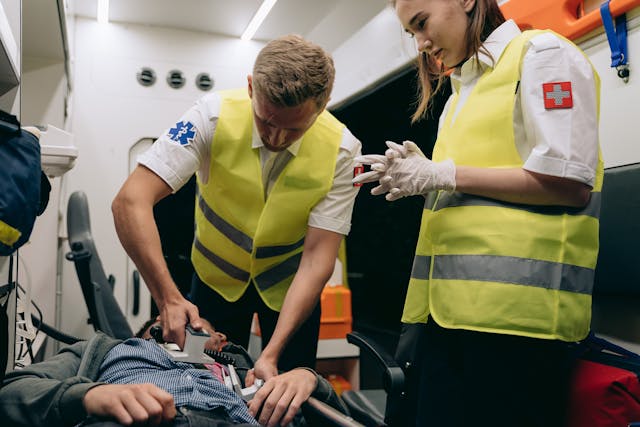How to Create Emergency Response Plans for Schools
Security is crucial in daily life. It is the responsibility of the school management to develop reliable security measures for the children of their school. It includes laying down adequate emergency response plans for potential scenarios threatening the institution.
Schools will safeguard lives by following emergency response plans. Explore each idea to help you make more informed decisions and be fully prepared. Remember that everyone needs to know the plan at their fingertips and practice it when required.
This blog will discuss several of these plans that learning institutions can adopt today.
Weapon Detection Technology
Emergencies are just as they sound: unforeseeable! One of the most effective response plans is adopting weapon detection technology across the school. These school security solutions use well-developed systems to scan people, bags, and other items entering the premises.
Some weapons that can be detected include guns, knives, and other metallic objects. Learning institutions can have these systems alongside security personnel at the main entrance points to the school. Adopting this technology ensures everyone entering the institution is properly scanned and questioned when necessary.
Medical Knowledge and First Aid Supplies
Another measure for emergency response is equipping learners and staff with medical knowledge. Furthermore, it ensures that the institution is equipped with enough first aid supplies.
It's not just a matter of investing in products but also ensuring regular restocking and maintenance, ease of accessibility, and training on how to use them. With these, the school will be more than prepared for emergencies that may endanger people's health.
Evacuation Plans
Security emergencies involve evacuating students, teachers, and other staff. Therefore, the school administration should establish dependable evacuation procedures in advance.
They can look for the best escape routes and assembly areas and train security officers to navigate them. Even better, you can conduct a few drills in the institutions to familiarize staff, students, and everyone else with how it works.
Effective Communication Channels
Without effective communication channels, emergency response plans may not be implemented adequately. It facilitates quicker information dissemination and responses to security threats.
The administration should set up several means of communication, from microphones, bells, messages, emails, two-way radios, and call centers across the school. Again, it's advisable to test their practicality to ensure impressive results.
Response Team
Not everyone in the institution is fully qualified to act in an emergency, even with basic first aid and evacuation knowledge. Ideally, it would be best for schools to have a permanently employed team of emergency responders around.
These professionals act quickly and are distributed across different specialties and departments. The administration must ensure periodic refresher training for the personnel to maintain their skills.
Community Involvement
Security is not a one-person thing since many parties are impacted when a threat happens. That's why it's best to get the community involved and maintain a healthy partnership. You can organize regular meetings to discuss security and wellness.
Other ways include sourcing safety-related supplies from local wholesalers and retailers and letting local security officers (medical experts and police officers) know every risk around the school. More openness and transparency should come from a friendly partnership.
Point out Possible Emergencies in Advance
The best emergency response plan is one that responds long before the disaster arrives. Some common accidents happen at schools. As an administrator or director, you should identify and solve them in advance.
You can point them out by assessing the premises' location (if it's prone to insecurity and accidents) or involving professional school managers; they know these things. Reviewing your old emergency response plans can reveal what crises must be addressed before they re-occur.
General Awareness
Emergency response plans are most effective when everyone in the institution knows what's expected of them. Hence, as a school, you should seek to educate students, even the young ones, teachers, and everyone on safety.
Enlighten them on what to do when various security threats strike. Knowing their security responsibilities will make the institution a better place.
Continuous Improvement and Compliance
The national government constantly improves school emergency response plan guidelines, regulations, and laws. That means the institution should be actively involved in learning the latest changes to ensure maximum compliance with the government.
After learning, you're tasked with further developing your plans to enhance their effectiveness. You should also train and drill new techniques to achieve desirable results in the long run.
It's also essential to be sensitive to socio-economic, cultural, and political issues when establishing every plan to ensure everyone is incorporated. This also helps create a sense of belonging and prevents resentment.

